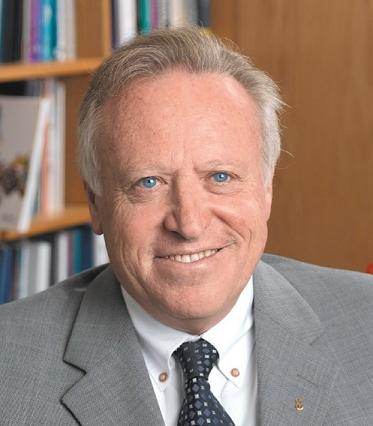The "Walker" award, one of the two most prestigious awards in the world in the field of silicon chemistry, will be awarded this summer to the president of the Technion, Professor Yitzhak Apluig. The prize is awarded once every two years by the giant German company Wacker to a leading scientist in the field of silicon chemistry.
The "Walker" award, one of the two most prestigious awards in the world in the field of silicon chemistry, will be awarded this summer to the president of the Technion, Professor Yitzhak Apluig. The prize is awarded once every two years by the giant German company Wacker to a leading scientist in the field of silicon chemistry.
The award was given to the president of the Technion for his "extraordinary achievements in the field of the chemistry of organosilicon compounds which significantly expanded global knowledge in this important field in science in general and industry in particular."
The "Walker" company is one of the leading silicone manufacturers in the world, and the prestigious award it gives is in the field of basic research and not necessarily applied, thus its uniqueness. The company also supports a series of scientific conferences in Europe that also focus on basic-academic research in the field of silicon, with the aim of encouraging research in this field, with the thought that quality basic research ultimately leads to discoveries of importance to industry and humanity as a whole.
The first organosilicon compounds and the silicone family were first prepared in the laboratory about 60 years ago, out of pure academic interest, but as soon as their interesting properties were discovered, they aroused great interest in industry as well. Silicones have important and unique properties, such as high impermeability to water (therefore they are used to preserve buildings and as sealants), lack of reaction of the human body to them (therefore they are common in implants of all kinds and in materials inserted into the body, such as catheters and infusions), exceptional resistance to harsh weather conditions and extreme temperature changes . The boots worn by Neil Armstrong, the first man to walk on the moon, were made of silicone rubber, which is the only material known to mankind that could withstand the extreme conditions on the moon's surface.
Professor Apluig's main contribution is expressed in the introduction of computational chemistry to this important field. The president of the Technion and his group explained, for example, why no materials are known with double or triple bonds between two silicon atoms, which is very common in carbon chemistry, contrary to the expectation that the behavior of carbon and silicon compounds would be similar. Moreover, the calculations of Professor Apluig and his group indicated ways and conditions that would make it possible to prepare compounds with double bonds to the silicon atom. The group took another important step and prepared these compounds in the laboratory, thus opening an opening for the preparation of new silicon compounds, which did not exist until now. These compounds can serve as a basis for the preparation of new polymeric compounds with unique properties.
Professor Apluig is one of the pioneers in the use of calculations based on the theory of quantum mechanics to predict the physical and chemical properties of materials and for many years "stepped against the current" in this field, since these are very complicated calculations that few believed in their ability to correctly predict the complex properties of materials. The application of the calculations to the field of silicon chemistry was particularly successful and resulted in achievements that convinced the scientific community of the possibility of their application and today chemists use these computational tools regularly in their research.

